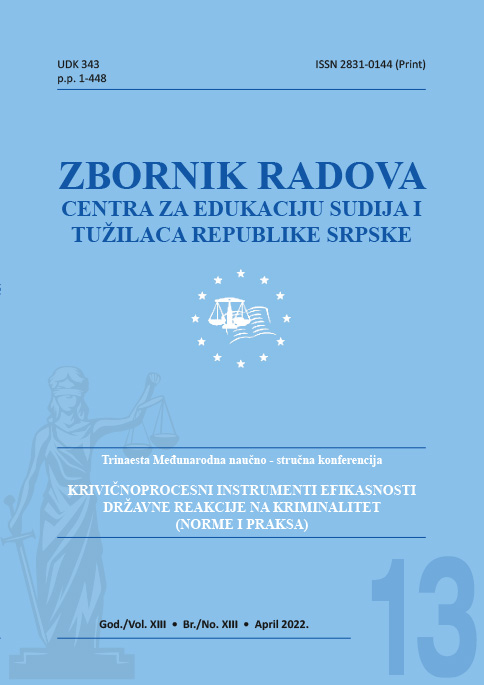PLEA AGREEMENT AND THE RIGHT TO A FAIR TRIAL
DOI:
https://doi.org/10.7251/CEST1322244MKeywords:
plea agreement, defendant, right to a fair trial, waiver of rights, negotiationsAbstract
In this paper the author analyzes the basic goals and characteristics of plea agreement, and the factors that affect the disadvantaged position of the defendant in the negotiation process. The first part of the paper presents normative and practical protective guarantees of the defendant's waiver of the right to a trial and individual procedural rights to defense, which are indicated by the case law of the European Court of Human Rights. The author also considers theoretical findings on the risks in the process of negotiating for the conclusion of a plea agreement, regarding the elements of the right to a fair trial. The central part of the paper is dedicated to the importance of the negotiation procedure, visible, but not regulated by the Criminal Procedure Code, conducting negotiations in accordance with the principle of fairness and problems of effective defense, a necessary precondition for establishing a balance of "negotiating powers".
Regarding the protective guarantees of effective defense, it is necessary to prescribe stronger legal mechanisms to control the denial of access to case files by the public prosecutor (from objecting to irregularities during the investigation) and to determine the precise reasons for denial of this right, control of the decision by the pre-trial judge. The principle of truth was formally eliminated from the principle of criminal procedure of the Republic of Serbia, which consequently narrowed the role of the court in the control of the plea agreement. This places an additional burden on the principle of fairness and its requirements in order to ensure fair procedure and fair outcomes.
